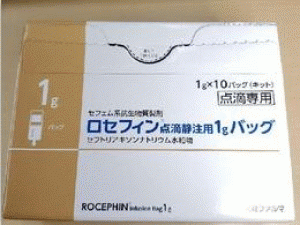甲磺酸塔格瑞斯,甲磺酸塔格瑞斯片Osimertinib (Tagrisso Tablets 40mg)
 药店国别:无
产地国家:日本
处方药:是
所属类别: 40毫克/片 28片/盒
包装规格: 40毫克/片 28片/盒
计价单位:盒
生产厂家中文参考译名:无
生产厂家英文名:AstraZeneca
原产地英文商品名:Tagrisso(タグリッソ錠)400mg/tab 28tabs/box
原产地英文药品名:Osimertinib Mesilate
中文参考商品译名:Tagrisso(タグリッソ錠)40毫克/片 28片/盒
中文参考药品译名:甲磺酸塔格瑞斯
曾用名:无
药店国别:无
产地国家:日本
处方药:是
所属类别: 40毫克/片 28片/盒
包装规格: 40毫克/片 28片/盒
计价单位:盒
生产厂家中文参考译名:无
生产厂家英文名:AstraZeneca
原产地英文商品名:Tagrisso(タグリッソ錠)400mg/tab 28tabs/box
原产地英文药品名:Osimertinib Mesilate
中文参考商品译名:Tagrisso(タグリッソ錠)40毫克/片 28片/盒
中文参考药品译名:甲磺酸塔格瑞斯
曾用名:无
简介
近日,日本劳动卫生福利部(MHLW)已批准靶向抗癌药Tagrisso(osimertinib,甲磺酸塔格瑞斯,タグリッソ錠)作为一种单药疗法,用于不能手术治愈的或复发性表皮生长因子受体(EGFR)突变阳性非小细胞肺癌(NSCLC)患者的一线治疗。 药物分类名称:抗肿瘤药/酪氨酸激酶抑制剂 批准日期:2016年5月 欧文商标名:Tagrisso Tablets 40mgTagrisso Tablets 80mg 一般名:オシメルチニブメシル酸塩(Osimertinib Mesilate)(JAN) 化学名:N-(2-{[2-(Dimethylamino)ethyl](methyl)amino}-4-methoxy-5-{[4-(1-methyl-1H-indol-3-yl)pyrimidin-2-yl]amino}phenyl)prop-2-enamide monomethanesulfonate 分子式:C28H33N7O2・CH4O3S 分子量:595.71 性 状:本品为白色至棕色粉末。 批准条件 制定药品风险管理计划并适当实施。制造和销售是必要的,只有熟悉肺癌诊断,化学治疗的药剂师才能进行这种药物的管理,能够充分控制这种药物的风险等,医疗机构,药剂师 采取措施。 <EGFR T790M突变阳性不能手术或复发的非小细胞肺癌对EGFR酪氨酸激酶抑制剂的抗性>由于日本的临床试验数量非常有限,通过对所有病例进行使用结果调查,直到制造和销售后累积一定数量的病例数据为止, 除了掌握所用患者的背景信息外,尽快收集该药的安全性和有效性数据,并采取必要措施正确使用该药。 药用药理学 作用机制:认为该药物抑制具有活性突变的EGFR酪氨酸激酶(L858R等)和具有活性突变的EGFR酪氨酸激酶和T790M突变的增殖,抑制携带EGFR基因突变的肿瘤的生长。 已经完成了。 抗肿瘤作用体外试验:这种药物,非小细胞肺癌从H1975(L858R/ T790M)具有非小细胞肺癌(NSCLC)衍生的PC9细胞系(Ex19del),EGFR激活与EGFR的活化突变和PC9VanR(Ex19del/ T790M)细胞突变和T790M突变 抑制菌株的生长。 体内试验:该产物在NSCLC衍生的H3255(L858R)和具有EGFR活性突变的PC9细胞系中显示出肿瘤生长抑制作用,并且裸鼠皮下移植了H1975和PC9VanR细胞系。 此外,它在转基因小鼠中表现出肿瘤生长抑制作用,其中EGFR活性突变和T790M突变在肺中表达。 此外,该产品在裸鼠中显示出肿瘤生长抑制作用,其中PC9细胞系被移植到脑和血沉棕黄层腔中。应病症表皮生长因子受体T790M突变阳性的EGFR酪氨酸激酶抑制剂的抗性的不可操作或复发性的非小细胞肺癌。 用法用量 成年人每天给药一次,每次口服为80毫克。应当指出的是,根据该状态的患者减量。包装规格片剂40毫克:[PTP] 28片(7片×4)80毫克:[PTP] 14片(7片×2) 制造厂商:阿斯利康有限公司英文版说明
TAGRISSO™ (osimertinib) receives positive CHMP opinion for patients with EGFR T790M mutation-positive metastatic non-small cell lung cancerAstraZeneca today announced that the Committee for Medicinal Products for Human Use (CHMP) of the European Medicines Agency (EMA) has adopted a positive opinion, recommending the marketing authorisation of TAGRISSO™ (AZD9291, osimertinib) 80mg once-daily tablets for the treatment of adult patients with locally advanced or metastatic epidermal growth factor receptor (EGFR) T790M mutation-positive non-small cell lung cancer (NSCLC).This indication includes NSCLC patients whose disease has progressed on or after treatment with an EGFR tyrosine kinase inhibitor (TKI) and patients with a T790M mutation who have not been treated with an EGFR-TKI.Sean Bohen, Executive Vice President, Global Medicines Development and Chief Medical Officer at AstraZeneca, said: “The CHMP’s recommendation for osimertinib to receive marketing approval is a positive step for patients in Europe. This follows the recent US accelerated approval of osimertinib and its adoption in the UK under the Early Access to Medicines Scheme to meet urgent unmet need. Building on the breakthrough clinical evidence, we’re investigating osimertinib’s full potential as a monotherapy and in novel combinations with other precision medicines and immunotherapies from our comprehensive oncology pipeline.”AURA study clinical investigator Professor Jean-Charles Soria, Head of Drug Development Department, Gustave Roussy Cancer Center, Paris, France added; “In Europe, lung cancer kills over 260,000 people every year, so there is an urgent need for new treatments. As a treating physician, it is very gratifying to see the progression of osimertinib towards use in clinical practice for patients living with EGFRm T790M non-small cell lung cancer.”Osimertinib is an EGFR-TKI designed to inhibit both the activating, sensitising mutation (EGFRm), and T790M, a genetic mutation responsible for EGFR-TKI treatment resistance. Nearly two-thirds of patients with EGFRm NSCLC whose disease progresses after EGFR-TKI treatment develop the T790M resistance mutation, for which treatment options are limited.The CHMP recommendation for osimertinib is based on data from two Phase II studies (AURA extension and AURA2) and the AURA Phase I expansion study, which demonstrated efficacy in 474 EGFRm T790M NSCLC patients who had progressed on or after an EGFR-TKI. In the combined Phase II studies, the objective response rate (ORR, a measurement of tumor shrinkage) was 66%, and in the Phase I study it was 62%. Progression-free survival (PFS) was 9.7 months in the combined Phase II studies and 11 months in the Phase I trial. Median duration of response (DOR) in the Phase I study was 9.7 months and in the combined Phase II studies, median duration of response was not reached.The most common adverse events based on data from the two AURA Phase II studies were generally mild to moderate and included diarrhoea (42% all grades; 1.0% Grade 3/4), rash (41% all grades; 0.5% Grade 3/4), dry skin (31% all grades; 0% Grade 3/4), and nail toxicity (25% all grades; 0% Grade 3/4). Warnings and precautions include interstitial lung disease, QT interval prolongation and embryofoetal toxicity.The positive CHMP recommendation has been received through the EMA’s Accelerated Assessment and follows the recent US Accelerated Approval of osimertinib by the Food and Drug Administration (FDA). In Japan, osimertinib was granted Priority Review by the Pharmaceuticals and Medical Devices Agency (PMDA). Interactions with regulatory authorities in the rest of the world are ongoing.NOTES TO EDITORSAbout Non-Small Cell Lung Cancer (NSCLC)Lung cancer is the leading cause of cancer death among both men and women, accounting for about one-third of all cancer deaths, and more than breast, prostate and colorectal cancers combined. Patients who have the EGFRm form of NSCLC, which occurs in 10-15 percent of NSCLC patients in Europe and 30-40 percent of NSCLC patients in Asia, are particularly sensitive to treatment with currently available EGFR-TKIs, which block the cell signalling pathways that drive the growth of tumour cells. However, tumours almost always develop resistance to treatment, leading to disease progression. In approximately two-thirds of patients treated with the approved EGFR-TKIs, gefitinib, erlotinib or afatinib, this resistance is caused by the secondary mutation, T790M.About osimertinibOsimertinib 80mg once-daily tablet is the first potential medicine indicated for the treatment of adult patients with metastatic EGFR T790M mutation-positive NSCLC. Non-clinical in vitro studies have demonstrated that osimertinib has high potency and inhibitory activity against mutant EGFR phosphorylation across the range of clinically relevant EGFRm and T790M mutant NSCLC cell lines, with significantly less activity against EGFR in wild-type cell lines.Osimertinib is being compared with platinum-based doublet chemotherapy in the confirmatory AURA3 Phase III study in patients with EGFR T790M-positive, locally advanced, or metastatic NSCLC who have progressed after EGFR-TKI therapy. It is also being investigated in the adjuvant and metastatic first-line settings, including in patients with brain metastases, and in combination with other compounds.About AstraZeneca in OncologyOncology is a therapeutic area in which AstraZeneca has deep-rooted heritage. It will be potentially transformational for the company’s future, becoming the sixth growth platform. Our vision is to help patients by redefining the cancer treatment paradigm and one day eliminate cancer as a cause of death. By 2020, we are aiming to bring six new cancer medicines to patients.用药温馨提示:当您服用此药物时,需定期接受医疗专业人士的检查,以便随时针对其药效、副作用等情况进行监测。本网站所包含的信息旨在为患者提供帮助,不能代替医学建议和治疗。
药品价格查询,专业药品查询网站,药品说明书查询,药品比价 » 甲磺酸塔格瑞斯,甲磺酸塔格瑞斯片Osimertinib (Tagrisso Tablets 40mg)
药品价格查询,专业药品查询网站,药品说明书查询,药品比价 » 甲磺酸塔格瑞斯,甲磺酸塔格瑞斯片Osimertinib (Tagrisso Tablets 40mg)





